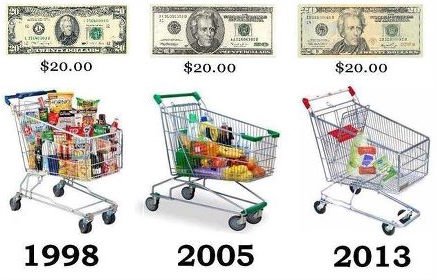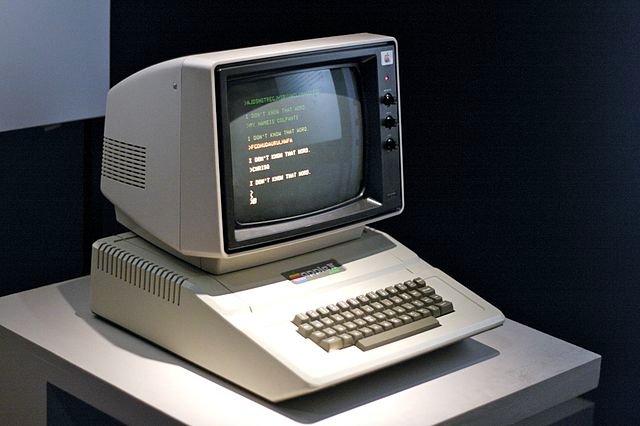Is The Need For Inflation a Myth?
Cryptocurrencies Implement Price Deflation
Most cryptocurrencies have a monetary policy that causes, or would cause, price deflation. If you pay for a product in say Bitcoin, it is quite likely that you will be paying a higher price now than you would in the future.
To give a personal example of price deflation in the Bitcoin economy: I have been paying my rent in Bitcoin for the last 1.5 years. My monthly rental payment has gone down by about half over that period.

Shopping Cart Inflation by Unknown
Economists Say Inflation is Needed
Many economists say inflation is needed to stimulate consumption. If your currency always gained value you would never want to spend it, so the argument goes. Central banks, like the FED and the ECB, follow that argument and implement policies that create at least some inflation.
The argument for inflation to stimulate consumption may sound compelling, but is it really so? Over the past years, I have come to doubt this wisdom, and here is why.

Apple II by Marcin Wichary
Markets With Price Deflation Work Fine
Let us look for instance at the computer hardware market for consumers. We have had several decades of ever declining prices in that market. If you buy a computer now, you can bet that you could buy a computer with the same specs in a year at a slightly lower price, or alternatively for the same money you could get a computer with slightly better specs. The theory that consumers will always delay buying does not seem to hold in this market.
People buy computers, and tablets, and mobile phones, regardless of the fact that they could get one just as good for less in the relatively near future. These markets have only grown exponentially over the past decades, in spite of supposedly being hampered by price deflation.
Probably this is because people want things now, and do not want to wait a year or even 6 months to buy what they want to have. In some other sectors, buying now is even more compelling, in the case of paying rent, you need to live somewhere now, you also need to eat now, you need to travel to work now, etc...
Alternative to Spending has Always Been There
Also there has always been an alternative to spending cash, it is called investing. A decent, not too risky, investment strategy should be able to outperform inflation.
What this means is that even in markets with price inflation, delaying a purchase and investing the money instead, is quite likely to allow you to buy more in the future. Yet this has not stopped spending either.

Screenshot from The rise of Bitcoin- You can't kill the Bitcoin
Conclusion
We are already living in a world where delaying a purchase allows one to buy more in the future, regardless of the fact that central banks pursue price inflation policies.
There may be other arguments for price inflation, and I am not an economist, but the argument that price inflation is needed because no-one would consume anything without it, does not really seem to hold.
Which in turn undermines one of the main arguments used to claim that our present crop of cryptocurrencies is unsuitable for the real economy.
IMO, this is a bug, not a feature. (or at least if it is a feature, its one that the creator would not have expected)
The deflationary nature of BTC (and by extension other cryptos) comes from the demand side, not the supply side. BTC is increasing in price because the number people using it, especially those using it for savings.
This is hard for many who live in the "first world" to see. But without a rising number of unbanked second and third world buyers, bitcoin would very likely be not just at equilibrium but at an equilibrium far lower than the current price levels.
In the same sense, the price-inflationary nature of currency in the modern era is also a bug, not a feature (and note that it is a relatively modern bug). Part of this is the wage/price rachet. Part of it is the fact that GDP (and thus money supply) has grown tremendously.
That said, i think its refreshing to hear someone talk about real inflation, not the money supply theory garbage that currently passes for economic theory in most posts on this site.